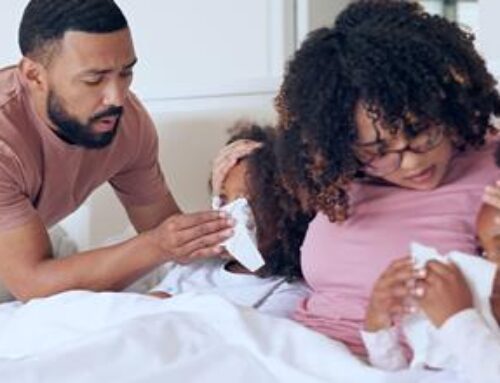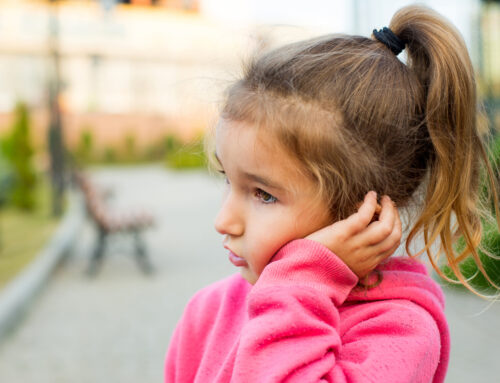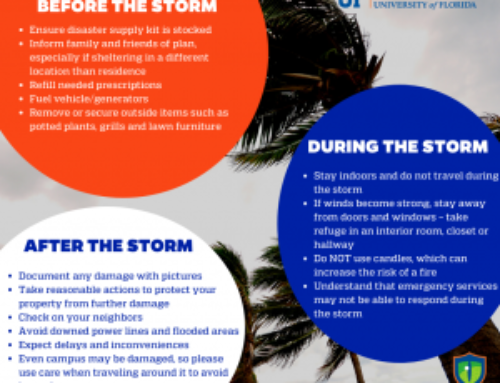The following article is very comprehensive and should be read by all who have children in the home:
5 Ways to Help Your Kids Have a Healthy School Year
We’ve seen a decline in vaccination rates nationally and are concerned about potential outbreaks of life-threatening diseases. A recent case of polio reported in New York reminds us that we cannot let down our guard. We also know that people vaccinated against viruses such as COVID and influenza (flu) are much less likely to have a severe illness or be hospitalized if they do get sick …
www.healthychildren.org
5 Ways to Help Your Kids Have a Healthy School Year[https://www.healthychildren.org/SiteCollectionImagesArticleImages/back-to-school-tips-to-help-kids-have-a-healthy-year-GettyImages-1332152570.jpg?RenditionID=3]
By: Sonja O’Leary, MD, FAAP
Children and teens are more likely to learn, thrive and develop appropriately when they attend school in-person<https://www.healthychildren.org/English/ages-stages/gradeschool/school/Pages/School-Attendance-Truancy-Chronic-Absenteeism.aspx>, alongside their peers. With schools back in session, here are some ways you can help your kids stay healthy and minimize absences.
The basics: sleep, exercise & nutrition
Begin with the basics, ensuring that students get nutritious<https://www.healthychildren.org/English/ages-stages/gradeschool/school/Pages/Back-to-School-Tips.aspx> meals, sufficient sleep and physical activity<https://www.healthychildren.org/English/healthy-living/fitness/StopWatch-Tool/Pages/default.aspx>. All of these are key to academic and social success. Studies show that children who eat a nutritious breakfast<https://www.healthychildren.org/English/healthy-living/nutrition/Pages/The-Case-for-Eating-Breakfast.aspx> function better at school, for example. Many children qualify for free or reduced-price food at school, including breakfast. The forms for these services can be completed at the school office.
Getting enough sleep<https://www.healthychildren.org/English/healthy-living/sleep/Pages/healthy-sleep-habits-how-many-hours-does-your-child-need.aspx> is also critical to staying healthy and thriving at school. Not getting enough sleep can affect memory, concentration, creativity and learning. In fact, lack of sleep is linked with lower academic performance<https://publications.aap.org/pediatrics/article/149/6/e2021054068/188062/School-Start-Times-Sleep-and-Youth-Outcomes-A-Meta?_ga=2.53149409.853950645.1660686438-428919197.1513353039>, school attendance<https://www.healthychildren.org/English/ages-stages/gradeschool/school/Pages/School-Attendance-Truancy-Chronic-Absenteeism.aspx> and tardiness.
Stay up to date on immunizations & checkups
Make sure your child is up-to-date on their vaccines and gets a yearly check-up. <https://www.healthychildren.org/English/ages-stages/Your-Childs-Checkups/Pages/default.aspx> If your child will be playing a sport, be sure to get a pre-participation (sports) exam<https://www.healthychildren.org/English/healthy-living/sports/Pages/Sports-Physical-PPE.aspx>. This type of exam also includes screening for mental health conditions. Your pediatrician can help you update any forms your child’s school may need in case of a medical emergency<https://www.healthychildren.org/English/ages-stages/gradeschool/school/Pages/Medical-Emergencies-in-School.aspx>.
If you have health insurance coverage through Medicaid or the Children’s Health Insurance Program (CHIP), check that your contact information<https://www.medicaid.gov/resources-for-states/coronavirus-disease-2019-covid-19/unwinding-and-returning-regular-operations-after-covid-19/renew-your-medicaid-or-chip-coverage/index.html> is up to date with your state Medicaid agency. This will ensure you get timely updates about your health coverage so you can avoid any gaps in coverage.
The single most effective way to protect our children before they return to school is to make sure they are up to date<https://www.healthychildren.org/English/tips-tools/ask-the-pediatrician/Pages/Why-is-it-important-for-my-kids-to-get-childhood-immunizations-during-COVID-19.aspx> on all of their immunizations.
We’ve seen a decline in vaccination rates nationally and are concerned about potential outbreaks of life-threatening diseases. A recent case of polio<https://www.healthychildren.org/English/health-issues/vaccine-preventable-diseases/Pages/Polio.aspx> reported in New York reminds us that we cannot let down our guard. We also know that people vaccinated against viruses such as COVID and influenza<https://www.healthychildren.org/English/health-issues/conditions/flu/Pages/the-flu-what-parents-need-to-know.aspx> (flu) are much less likely to have a severe illness or be hospitalized if they do get sick, compared with those who are unvaccinated.
Keeping COVID under control
The AAP recommends COVID vaccination<https://www.healthychildren.org/English/tips-tools/ask-the-pediatrician/Pages/when-can-children-get-the-COVID-19-vaccine.aspx> for everyone 6 months and older. Children should get fully immunized as soon as they are eligible. Keep children and teens home from school if they are sick or show new symptoms<https://www.healthychildren.org/English/health-issues/conditions/COVID-19/Pages/Return-to-School-During-COVID-19.aspx>, and continue to emphasize handwashing. Although not required in many school districts, indoor masking is still a good idea. Use well-fitting masks if your child is currently ineligible for the COVID-19 vaccine; is unvaccinated; immunocompromised; if a family member is at high risk; or you live in a community with “high” COVID-19 transmission.
Stay tuned in to your child’s mental health
Many children and teens have experienced mental health struggles<https://www.healthychildren.org/English/health-issues/conditions/COVID-19/Pages/Signs-your-Teen-May-Need-More-Support.aspx> over the past few years. It’s important to let them know it’s OK to talk about how they’re feeling. Stay on the lookout for any changes in behavior that worry you or any signs of anxiety<https://www.healthychildren.org/English/family-life/family-dynamics/Pages/help-your-child-manage-fears-and-anxieties.aspx>, depression<https://www.healthychildren.org/English/health-issues/conditions/emotional-problems/Pages/Childhood-Depression-What-Parents-Can-Do-To-Help.aspx> or distress. Try to prioritize family meals and exercise breaks, like taking walks together. These can be great opportunities to talk.
Ask your pediatrician if you are unsure if your child needs help or how to start a discussion<https://www.healthychildren.org/English/healthy-living/emotional-wellness/Pages/How-to-Talk-with-Your-Child-and-Their-Pediatrician-About-Mental-Health-Concerns.aspx>. Schools may also offer sources of mental health support.
If you have a firearm <https://www.healthychildren.org/English/safety-prevention/at-home/Pages/Handguns-in-the-Home.aspx> in your home, make sure to lock it up and store the ammunition separately. The increased risk of suicide<https://www.healthychildren.org/English/health-issues/conditions/emotional-problems/Pages/Which-Kids-are-at-Highest-Risk-for-Suicide.aspx> is higher for children and teens who live in a home where guns are stored loaded or unlocked.
Talk about racism, bullying & kindness
Talk with your child about racism<https://www.healthychildren.org/English/healthy-living/emotional-wellness/Building-Resilience/Pages/Talking-to-Children-About-Racial-Bias.aspx> and hate. Encourage children to seek help from a trusted adult if they are discriminated against or witness an act of bullying<https://www.healthychildren.org/English/safety-prevention/at-play/Pages/Bullying-Its-Not-Ok.aspx> or discrimination against others. Emphasize the value of treating others with respect and how simple acts of kindness<https://www.healthychildren.org/English/healthy-living/emotional-wellness/Building-Resilience/Pages/Kindness-Can-Make-a-Big-Difference.aspx> can make a big difference.
Plan for mindful media use
The change in routine is a good time to create or update your family media plan<https://www.healthychildren.org/English/fmp/Pages/MediaPlan.aspx> so you can help your child balance screen time with sleep, exercise and other healthy activities. Help your children choose high-quality programs or games<https://www.healthychildren.org/English/family-life/Media/Pages/Video-Games-Set-Your-Own-Ratings-System.aspx> and help them recognize sites that that promote false information.
Remember
Children are resilient<https://www.healthychildren.org/English/healthy-living/emotional-wellness/Building-Resilience/Pages/default.aspx> and can overcome many challenges with the help of trusted adults around them. Talk with your pediatrician if you have any questions or concerns about your child’s health as the school year starts.
More information
* Back to School Tips<https://www.healthychildren.org/English/ages-stages/gradeschool/school/Pages/back-to-school-tips.aspx>
* School Attendance, Chronic Absenteeism & Truancy<https://www.healthychildren.org/English/ages-stages/gradeschool/school/Pages/School-Attendance-Truancy-Chronic-Absenteeism.aspx?_ga=2.23366783.498497099.1662988396-1323654368.1515105807&_gac=1.57350872.1660052211.CjwKCAjwi8iXBhBeEiwAKbUofTO4nFcuNc3I9LkbqZMWW4lDXGyOscbjQ09X58czvk-qyRx2KeH5SBoCP_QQAvD_BwE&_gl=1%2a1uuabqy%2a_ga%2aMTMyMzY1NDM2OC4xNTE1MTA1ODA3%2a_ga_FD9D3XZVQQ%2aMTY2MzM2MDk1NS4xMTYzLjEuMTY2MzM2Nzg1MS4wLjAuMA..>
* Backpack Safety<https://www.healthychildren.org/English/safety-prevention/at-play/Pages/Backpack-Safety.aspx>
* Walking and Biking to School<https://www.healthychildren.org/English/safety-prevention/on-the-go/Pages/Safety-On-The-Way-To-School.aspx>
* School Safety During an Emergency or Crisis: What Parents Need to Know<https://www.healthychildren.org/English/safety-prevention/all-around/Pages/Actions-Schools-Are-Taking-to-Make-Themselves-Safer.aspx>
* Staying Safe in School During COVID-19<https://www.healthychildren.org/English/health-issues/conditions/COVID-19/Pages/Return-to-School-During-COVID-19.aspx>
About Dr. O’Leary
Sonja O’Leary, MD, FAAP, is chair of the American Academy of Pediatrics Council on School Health.
Last Updated
9/21/2022
Source
American Academy of Pediatrics (Copyright © 2022)
The information contained on this Web site should not be used as a substitute for the medical care and advice of your pediatrician. There may be variations in treatment that your pediatrician may recommend based on individual facts and circumstances.
FOLLOW US
* <https://www.instagram.com/healthychildrenaap/>
* <https://facebook.com/healthychildren>
* <https://twitter.com/healthychildren>
* <https://www.youtube.com/channel/UClR8YIQX5Fb8J2wmsUKLhvQ/featured>
* <https://www.pinterest.com/healthychildrenaap/>
* <https://www.linkedin.com/company/american-academy-of-pediatrics>
* Contact Us<https://www.healthychildren.org/english/pages/contact-us.aspx>
* About Us<https://www.healthychildren.org/english/pages/about-aap.aspx>
* Privacy Policy<https://www.aap.org/en-us/Pages/Privacy-Statement.aspx>
* Terms of Use<https://www.aap.org/en-us/Pages/Terms-of-Use.aspx>
* Editorial Policy<https://www.healthychildren.org/English/Pages/Editorial-Policy.aspx>
[This website is certified by Health On the Net Foundation. Click to verify.]<https://www.healthonnet.org/HONcode/Conduct.html?HONConduct472278>This site complies with the HONcode standard for trustworthy health<http://www.healthonnet.org/HONcode/Conduct.html> information:
verify here.<https://www.healthonnet.org/HONcode/Conduct.html?HONConduct472278>
© Copyright 2022 American Academy of Pediatrics. All rights reserved.
Peace,
Irwin J. Kash MD
Irwin J. Kash







